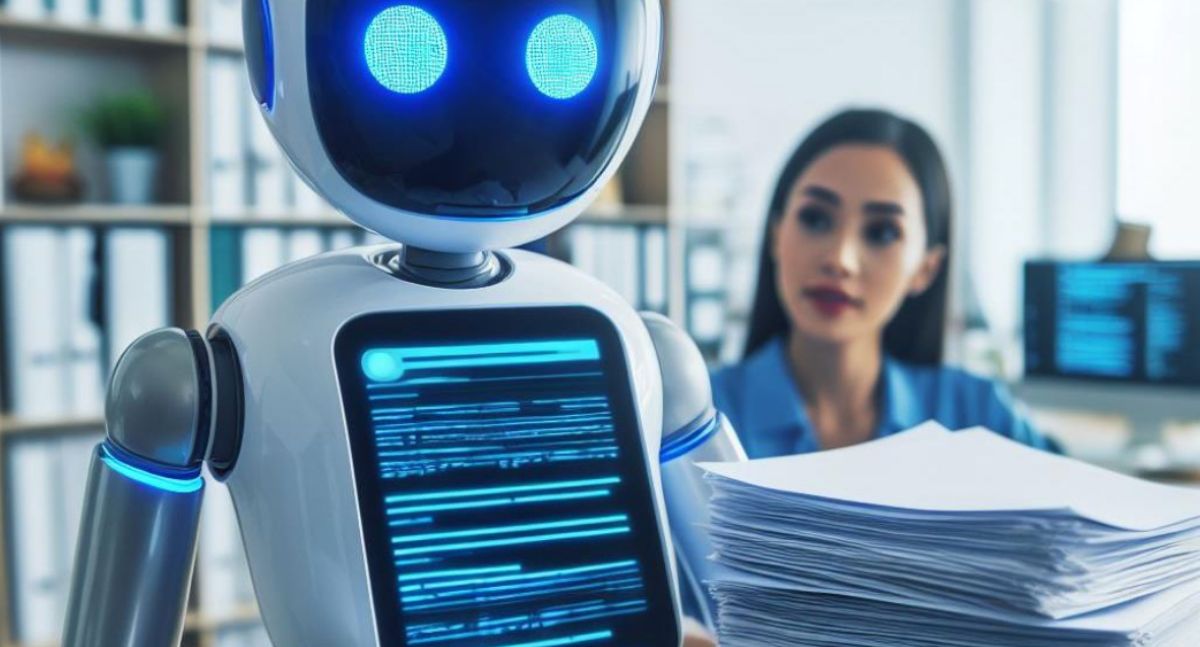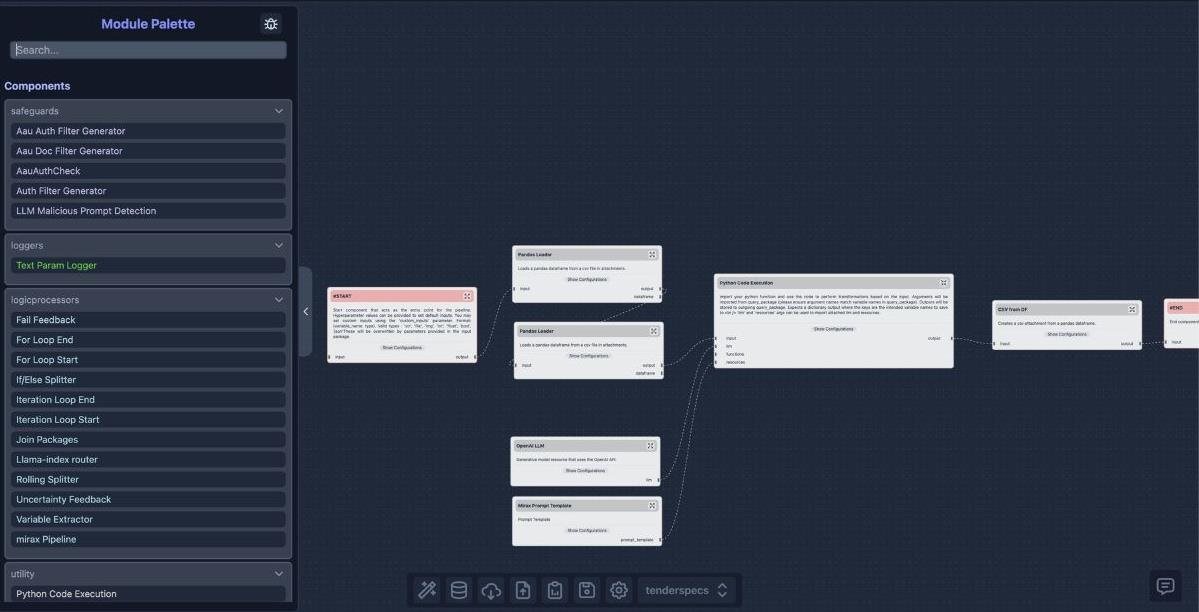
From Assistive to Agentic: Transforming the Future of Enterprises
Even in today’s digitised business landscape, inefficiencies lurk within both small and large enterprises. One major challenge is the laborious process of filtering through cast volumes of data to retrieve critical information. Existing search tools, while functional, still fall short of the efficiency needed in modern workflows.
“Our goal is to create a single, comprehensive knowledge management capability that captures and utilises enterprise knowledge within a secure, scalable and adaptable platform,” shared Dennis Chew, ST Engineering’s Group Engineering Centre (GEC) AI Team Lead.
"With AI, I think we are poised to revolutionise how people work, and in enhancing productivity across the board." |
Unifying Enterprise Knowledge Across Applications
In today’s market, even the most powerful AI tools are often limited to specific ecosystems. In response to this, we are building a versatile set of AI abilities that can seamlessly integrate with various enterprise programmes, including local applications and secure offline environments. This is especially crucial to industries handling sensitive information, such as public security and defence, where cloud-based solutions may not be viable.

“We aim to deploy and run AI models on-premise, enabling a more robust approach to safeguard enterprise reputation and protect sensitive data,” shared Dennis.
More than just an enterprise tool, this will be a robust, offline-capable expertise that can be trained to extract and process data across multiple databases, offering unparalleled flexibility and security.
All Sorts of Smart rolled into One
These are some of the many things we are developing at our GEC, which leverages the latest technologies to create reusable common modules. These modules are an expanding set of tech capabilities that we can deploy to drive diverse solutions across sectors, accelerating innovation throughout our organisation.
These are also the foundation of our growing AI portfolio, which includes enterprise applications by virtual assistants like chatbots and co-pilots. Other use cases include boosting security operations, transforming customer service, accelerating software development, and generating content through prompts.

Elevating Organisational Efficiency with AI-Powered Knowledge Management
Driven by the reusable common module that encapsulates our real-time AI knowledge management and insight mining capabilities, AGIL® Knowledge is a cornerstone solution developed to supercharge enterprise efficiency. By tapping into natural language processing and large language models, this system catalyses transformative collaboration. It not only organises information but also makes the process practical and easy to use, revolutionising search and accelerating content retrieval and analysis.
When paired with chatbots, this module provides the groundwork for smarter, faster information retrieval across organisations. Transcending simple rule-based question-and-answer sessions, smart virtual agents can solve complex issues in real time without relying on predefined keywords.
“One of the key differentiators of our AI approach is the focus on user experience. For instance, we use conversational AI for more dynamic interactions as compared to traditional chatbots,” Dennis shared.
Such a chatbot has been incorporated into our GoParkin™ Smart Car Park Suite’s contact centre operations, allowing operators to retrieve information to guide users on queries efficiently.
Workplace Impacts of Agentic AI
Beyond assistive AI, we are pushing boundaries with AGIL® Knowledge AI Studio – a modular interface for retrieval and agentic extension. This reusable common module represents a leap forward in this AI era, transitioning from passive assistance to active decision-making and task execution. With low code no code AI retrieval and agent builder features, it is a versatile capability that empowers users to create sophisticated AI-enabled workflows through an intuitive drag-and-drop interface, eliminating the need for extensive coding knowledge.

AGIL Knowledge AI Studio opens new possibilities for enterprise efficiency and productivity. From designing full software to automate routine HR tasks to co-pilot for tender evaluation process, the decision-making power of agentic AI can benefit various industries, including healthcare, finance, and hospitality.
A New Agentic Era of Enterprise Efficiency
The transition from assistive to agentic AI marks a watershed in enterprise operations. As AI evolves, it will become increasingly capable of automating complex tasks and enabling organisations to focus on higher-level strategic objectives. From revolutionising search to democratising the creation of AI workflows, the future of AI fundamentally transforms the way we work.
The possibilities of agentic AI are vast and various. We are already in a world where humans and machines collaborate seamlessly in an AI-driven workplace. To fuel efficiency, innovation and growth, we aim to continue developing solutions for modern workloads. Through our reusable common modules, we are not only responding to the needs of today’s businesses – we are shaping the enterprises of tomorrow.

Revolutionising Productivity for Next-Gen Enterprises
Hear more from Dennis Chew, AI Team Lead, Group Engineering Centre, who shares how our reusable common modules are transforming productivity and innovation by streamlining data access, enhancing knowledge management, and building smarter workflows.
Watch to learn how our AI-driven capabilities can unify team efforts and optimise operations, keeping businesses ahead in the age of agentic AI.
Explore our capabilities and other stories of innovation
Subscribe to our newsletter
Copyright © 2025 ST Engineering
By subscribing to the mailing list, you confirm that you have read and agree with the Terms of Use and Personal Data Policy.






